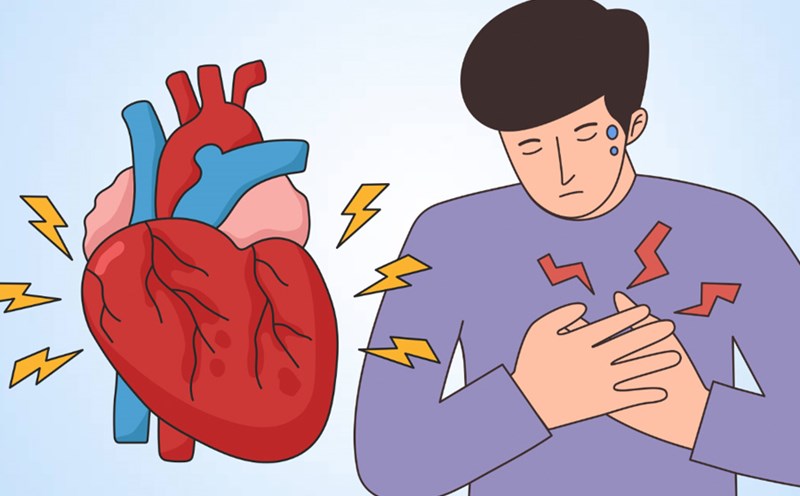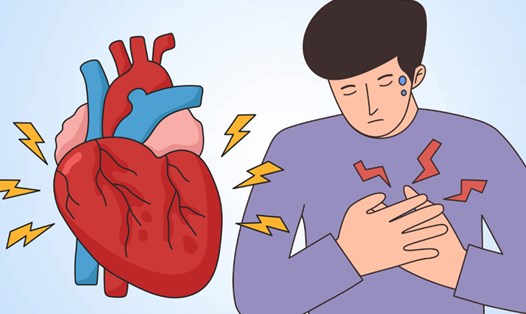saturated fat and LDL cholesterol
Cheese pasta contains high saturated fat, although natural cholesterol is not high. A serving of whole milk or butter made from whole-wheat cheese pasta can account for almost all of the recommended daily saturated fat intake.
Dr. Sohaib Imtiaz, a cardiologist at Cleveland Hospital (USA) explains: "Saturated fats make the liver produce a lot of low-density lipoprotein (LDL), also known as bad cholesterol. Prolonged high LDL levels can lead to atherosclerosis and increase the risk of heart attack."
Experts emphasize that when LDL increases in the blood, cholesterol particles are easily trapped in the walls of the vessels, causing inflammation, oxidation and plaque formation. This process hardened and narrowed the arteries, increasing the risk of stroke or heart attack.
Eat in moderation to protect your cardiovascular system
Research shows that atherosclerosis increases the risk of heart attack by two to eight times, depending on the severity of clogged arteries. The US dietary guide recommends limiting saturated fat to less than 10% of total daily calories, equivalent to about 20 grams with a 2,000-calorie diet.
"There is no need to completely avoid cheese pasta, but you should choose a low-fat or whole-wheat pasta version, reduce cheese and butter, to limit the impact on cholesterol," says Dr. Dennis Sifris, MD, University Hospital Sydney (Australia).
Tips for enjoying cheese pasta
In addition to cholesterol, cheese pasta is also high in calories, sodium and low in fiber if made from refined flour. To still enjoy this dish while protecting cardiovascular health, experts recommend:
Choose low-fat, whole-wheat pasta, or cheese-reduced version when cooking on your own.
Add green vegetables, lean proteins and fruits to your meals to balance nutrition.
Reduce salt when cooking and limit eating too often.
Maintain a varied diet and exercise regularly to control cholesterol and heart health.
Dr. James Myhre, Johns Hopkins University of Medicine (USA) emphasized: "The important thing is balance. Curd noodles are not an enemy, but overusing them will have a long-term impact on cholesterol and the heart."










